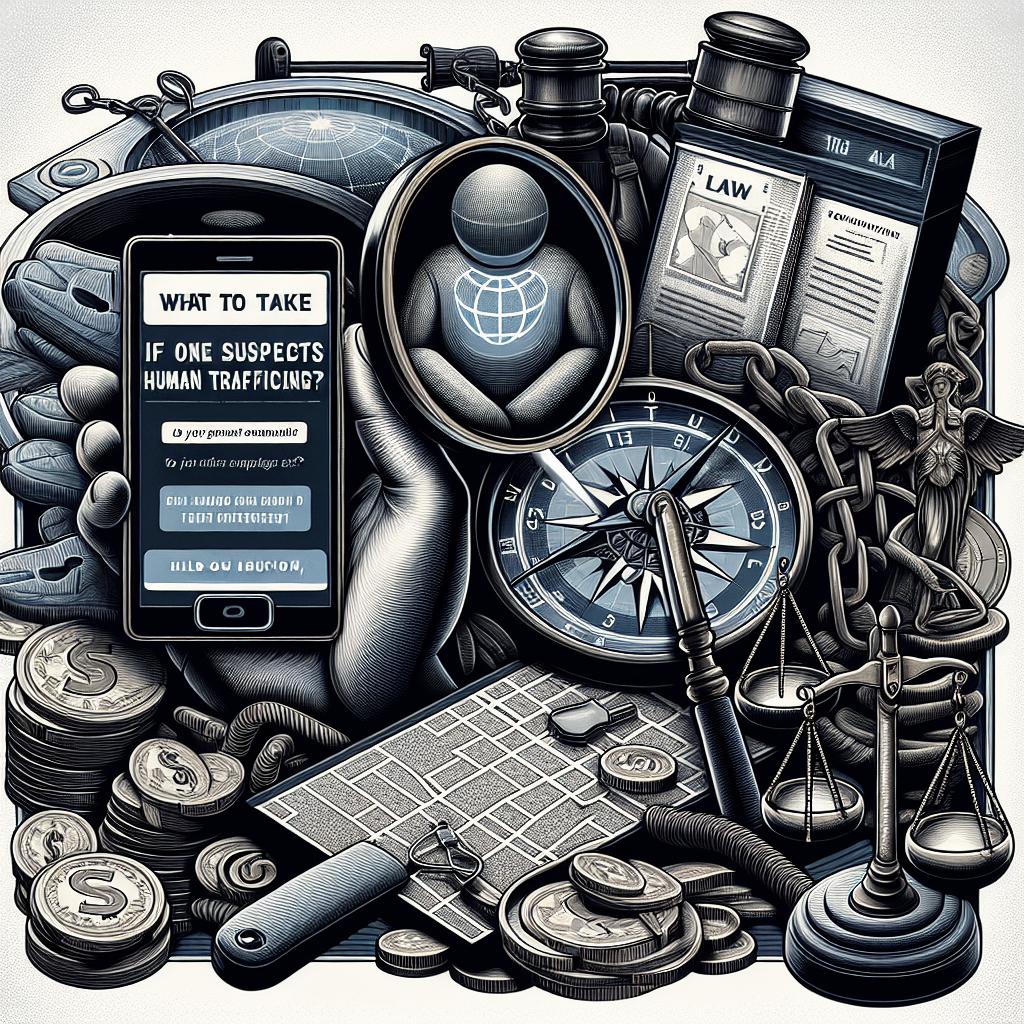“`html
Steps to Take If One Suspects Human Trafficking
Human trafficking is a grave violation of human rights and a concerning global issue impacting millions. If you suspect someone is a victim of human trafficking, it is crucial to act swiftly and responsibly. This guide outlines the various steps you can take, from identifying signs and contacting authorities to engaging with community resources and prevention initiatives. By understanding these measures, you can contribute to a broader societal effort to combat this crime while supporting recovery and advocacy for victims.
Talk to Someone
If you suspect human trafficking, one of the first steps is to notify a trusted contact or professional. This could be a police officer, social worker, or community leader familiar with the nuances of such situations. Talking to someone can help articulate your suspicions, allowing you to process observations while determining the most appropriate path forward.
Additionally, opening up a conversation with a victim, if safe to do so, is essential. Listening without judgment and expressing genuine concern can make a significant difference. It is crucial to approach any interaction sensitively and discreetly to ensure the victim’s safety.
Canadian Human Trafficking Hotline
The Canadian Human Trafficking Hotline is a critical resource offering confidential support. Available 24/7, this hotline serves as a beacon of hope for victims and concerned bystanders by providing information, referrals, and assistance tailored to each situation.
When contacting the hotline, be prepared to share any information you have, no matter how small it may seem. The professionals on the other line are trained to handle such delicate matters and can provide guidance on the next steps to take, whether it involves law enforcement or support services.
Community-based Services and Indigenous-led Supports
Community Organizations and Indigenous Service Providers
Community organizations play an integral role in offering support and resources to victims of human trafficking. These groups often provide services ranging from emergency shelters to counseling, assisting survivors in their journey to reclaim autonomy and independence.
Indigenous service providers are equally crucial as they offer culturally relevant support that respects and integrates Indigenous practices and worldviews. Recognizing the distinct needs of Indigenous communities can significantly impact the effectiveness of support efforts.
Anti-human Trafficking Indigenous Liaisons
Anti-human trafficking Indigenous liaisons act as vital connectors, fostering communication and collaboration between Indigenous communities and broader support networks. Their role is to ensure that culturally sensitive approaches are maintained, assisting both in prevention and recovery.
Regional Anti-human Trafficking Coalitions
Regional coalitions bring together organizations and stakeholders committed to eradicating human trafficking. These alliances coordinate resources, share insights, and develop strategic plans tailored to the unique needs and characteristics of specific regions.
Housing Support
Safe housing is paramount for trafficking survivors, offering a secure environment for recovery. Various programs provide temporary and transition housing, equipping individuals with the resources needed to start anew.
Legal Assistance
Legal aid is a cornerstone of recovery for trafficking survivors. Access to knowledgeable lawyers who specialize in human trafficking cases ensures that victims receive justice and are protected under the law, helping them rebuild their lives with dignity.
Human Trafficking Prosecution Team
Prosecution teams dedicated to human trafficking cases work diligently to bring traffickers to justice. These teams are essential in processing and acquiring evidence, navigating legal proceedings, and advocating for the rights and protection of survivors.
Services for Children and Youth
Children at Risk of Exploitation (CARE) Units
CARE units focus on identifying and protecting children vulnerable to trafficking. These specialized teams work alongside law enforcement and child protective services to offer interventions tailored to prevent exploitation.
Specialized Homes for Trafficked Children and Youth
Specialized homes provide safe and nurturing environments for trafficked children and youth. These facilities are equipped with trained staff that understand the countless nuances of trauma, offering both short-term and long-term support.
Youth-in-Transition Workers
Youth-in-transition workers shine as key proponents in bridging the gap between childhood and adulthood for trafficking survivors. These professionals guide young individuals through educational achievements, employment opportunities, and personal development.
Prevention and Education Programs
Public education and awareness campaigns are pivotal in preventing human trafficking. By dispelling myths and informing communities about the indicators of trafficking, these programs empower citizens to recognize and report potential instances.
Schools, workplaces, and community centers often host workshops and events that educate about human trafficking’s realities, encouraging proactive engagement and vigilance.
Training for Service Providers
Police Training
Training law enforcement officers in the intricacies of human trafficking is essential for effective identification and resolution. Continuous professional development ensures that police can appropriately handle cases and interact sensitively with victims.
These training programs are designed to equip officers not just with knowledge but also with empathy, ensuring responses that prioritize victim safety and well-being.
Future Prospects
| Section | Summary |
|---|---|
| Talk to Someone | Establish contact with trusted individuals or professionals to express concerns and gather advice. |
| Canadian Human Trafficking Hotline | A 24/7 confidential service providing guidance and referrals for suspected human trafficking cases. |
| Community-based Services and Indigenous-led Supports | Accessing resources through community organizations, with emphasis on Indigenous-specific support systems. |
| Services for Children and Youth | Specialized programs aimed at protecting and supporting young trafficking victims towards healthier futures. |
| Prevention and Education Programs | Community-focused initiatives to raise awareness and educate on identifying human trafficking signs. |
| Training for Service Providers | Professional training for police to improve response and interaction with human trafficking victims. |
“`


